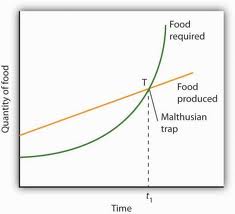


The contemporary challenge to Marxism, however, also has a positive side in the form of popular revolts against the neoliberalisation of the global economy – the Chiapas rebellion in Mexico, the December 1995 public sector upheavals in France, and many others, not to mention the heroic struggle of the Cuban people against the threat of recolonisation by US and global capital. More recently, the rethinking of Marxism has been driven largely by the collapse of the Soviet Union and its official Marxist ideology, and by the movement toward neoliberal ‘free market’ policies on a global scale, which together have brought forth a tidal wave of frankly pro-capitalist as well as ‘postmodern’ left varieties of ‘end of history'-type thinking. According to this theory, all countries pass through four stages of demographic evolution.

Recent decades have seen a rethinking and renewal of Marxism on various levels, beginning in the 1950s and 1960s when New-Left movements in the developed capitalist countries combined with Maoist, Guevarist, and other Third-World liberation struggles to challenge the ossified theory and practice of Soviet-style communism and traditional social democracy. By then the neo-Malthusian demographic transition theory was well accepted. This neo-Malthusian computer model was used to justify the culling of the unfit and overpopulated useless eaters and was subsequently incorporated into the third official World Economic Forum (WEF) meeting at Davos, where Aurelio Peccei was introduced by Klaus Schwab and showcased the Limits to Growth magic to thousands of supportive attendees.


 0 kommentar(er)
0 kommentar(er)
